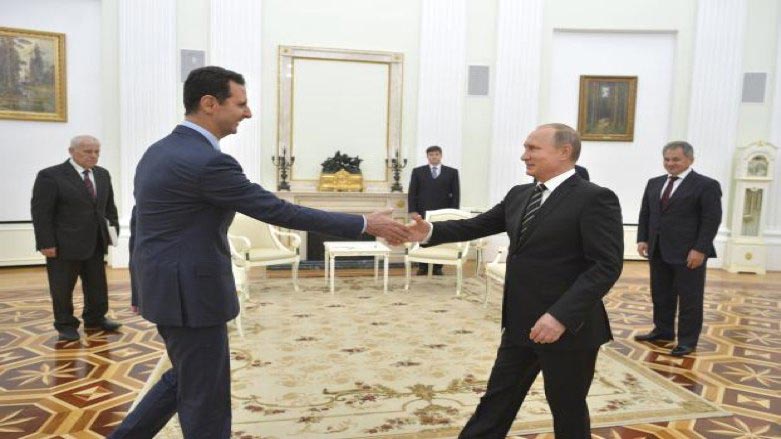Russian gains in Syria

As the Geneva talks on Syria resumed this week after a two-year hiatus, Russia has clearly benefitted from its military intervention in the war-torn country. Last summer, the Syrian regime of Bashar al-Assad, looked to be in real danger of falling, but the Russian airstrikes have turned that around. It is difficult to imagine Assad leaving any time soon. Not only has Moscow saved its ally and secured its position in the Mediterranean, it has gained elsewhere too.
When Russia began quietly sending men and equipment to Syria last August, US officials cautioned it against providing active military support for the regime. In early September, Secretary of State John Kerry warned that Moscow would “risk confrontation with the [US-led], anti-ISIL Coalition.” But Moscow ignored the warnings, and its bombing began on Sept. 30.
Just a month later, the Chairman of the Joint Chiefs of Staff Gen. Joseph Dunford told the Senate Armed Services Committee that the Russian airstrikes along with increased support from Iranian-backed forces—Lebanese Hezbollah, as well as Shi’ite fighters from Afghanistan and Pakistan—had “stabilized” Assad’s regime.
The White House had first viewed Russia’s intervention with disdain, suggesting that Moscow had “ensnared itself in a tribal struggle,” which it “may come to regret.” That was simply wrong. Gen. Dunford’s view is now the common perspective.
Europe’s migrant crisis and Dae’sh’s (IS) attacks on European targets have added a new urgency to resolving the Syrian conflict, or at least taking the first steps in that direction. Europeans are concerned about another 9/11, this time on their own soil. That has led them, along with the US, to overlook the atrocities that Moscow and Damascus are committing. Appeals to confront Moscow over such war crimes before the talks begin fall on deaf ears.
Countries can adjust to shifts in power relations with surprising speed. Secretary of State John Kerry travelled to Russia in mid-December and held an extended meeting with President Vladimir Putin at Mr. Putin’s Sochi residence. Originally scheduled for 90 minutes, the discussion lasted four hours. Prior to that meeting, the US maintained that Assad must step down before peace talks could begin. But after the meeting, Mr. Kerry stated that the US was not seeking regime change in Syria. Essentially, he had accepted the Russian position: a transition period, after which Syrians, themselves, would choose their own leader. Of course, it remains unclear how this will happen.
Russia’s intervention in Syria has also improved Moscow’s standing in Europe, bringing Russia in from the cold, after its isolation for its aggression in Ukraine, and increasing the chances that sanctions will be lifted soon. At the World Economic Forum in Davos, Switzerland, Mr. Kerry suggested that moves to lift sanctions on Russia could begin “within months.” Two days later, on Jan. 24, France’s Economy Minister echoed Mr. Kerry’s remarks during a visit to Moscow, where he said that France hopes sanctions on Russia will be lifted “this summer.” As one analyst noted, the French position has less to do with developments in Ukraine than its desire to join Moscow in confronting the threat from Muslim extremists, following Russian “successes” in Syria.
Thus, the talks that will be held this week reflect the improved position of the Assad regime that Russia’s bombing campaign has produced. But it may well be better to hold such talks than not to do so. Carnegie’s Aron Lund suggests that, at a minimum, they hold prospect of limiting the human suffering and, quite possibly, will lay the groundwork for more productive discussions in the future.
Laurie Ann Mylroie, Ph.D., taught at Harvard University and the US Naval War College. Most recently, she served as a cultural advisor to the US military in Afghanistan.
Editing by Ava Homa and Karzan Sulaivany
